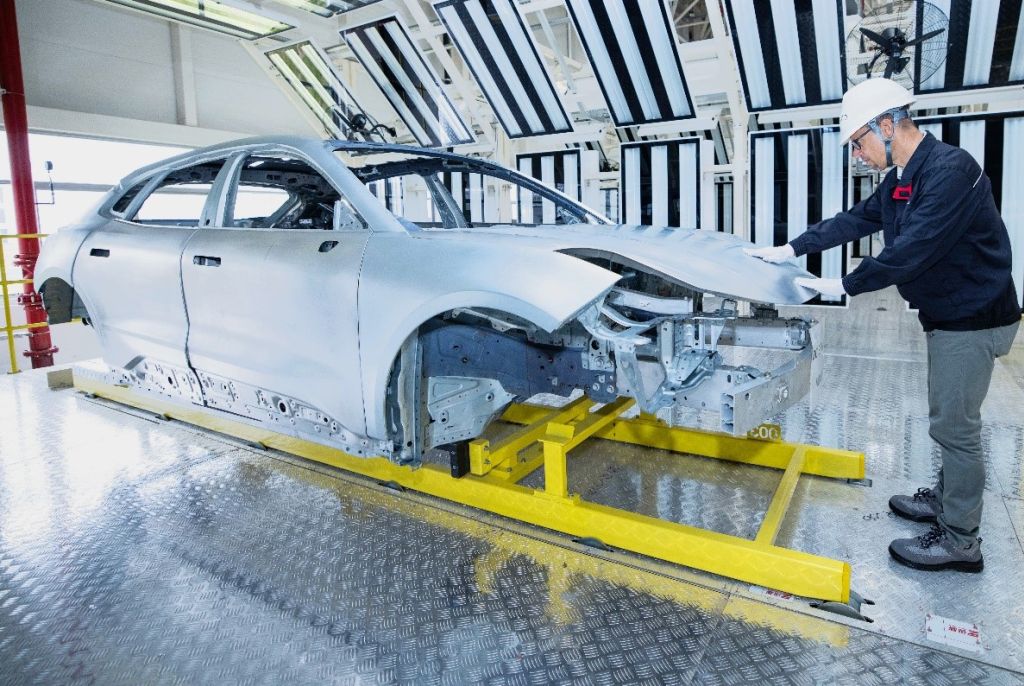
FRANKFURT: The car industry was initially slow to embrace the electric revolution, and for many years makers were accused of dragging their heels.
But that was yesterday. Now the race to produce electric cars is in full swing.
Many of the best new models lined up for 2021 have electric drive, and competition has also spawned new manufacturers.
New in town is Chinese maker Lynx & Co, which has teamed up with Swedish maker Volvo to offer what is billed as the ultimate electric SUV. Nio and Byton are limbering up to export their cars, while the Koreans are fettling their stand-alone badge Ioniq as an electric-only brand.
Even born-again nameplate MG is grabbing a slice of the electric action with its first-ever electric, the ZS.
All these makers will do battle in the hotly contested SUV sector.
Lynx & Co has lined up its pure electric 01, which uses a modular vehicle platform from Chinese giant Geely. Nio's ES6 and Byton's M-Byte are similar high-riding electrics that are designed to be equally at home on the highway or in the rough stuff. The Ioniq 5 is in the same mould.
Established carmakers have not been dozing either. German car companies in particular are coming on strong. Audi has announced the e-tron Q4, BMW will unveil the iX3 and Mercedes-Benz is fielding the EQA.
Not to be outdone, Volkswagen presents its ID4 and its offbeat sibling, the ID5. German customers will soon be able to buy the Tesla Model Y, which will eventually come off assembly lines at a giant new high-tech factory on the outskirts of the German capital, Berlin.
Toyota's Lexus brand is rolling out the UX300e, which is the first all-electric from the Japanese automotive empire. Meanwhile VW's Czech offshoot Skoda has the Enyaq, Spanish subsidiary Seat the Cupra el-Born and Ford is presenting its first-ever "proper" electric car, Mustang Mach-E. The heavy five-door SUV shares its name with the sporty Mustangs of yore in name only. Experts say it is a real departure for the blue oval, and a very capable one.
Opel is aiming to have its cake and eat it too by offering electric and combustion engined variants of the little Mokka. The move is being aped by Citroen, which offers the C4 crossover as an electro-sipper and a petrol-fuelled car.
Nissan caters for less adventurous buyers with a conventional petrol variant of the Qashqai, but the new hybrid model can drive on electric power too.
The boldly styled Ariya keeps the looks of a concept unveiled at last year's Tokyo motor show. It showcases Nissan's new brand identity, with what are being hailed as "seamless, elegant and fresh" visuals.
More of a throwback to the old world of pistons and engine oil are a few SUV debuts like the revamped Hyundai Tucson, the compact Kia Sorento and a crossover based on the Toyota Yaris. Just like the next-generation Honda HR-V, based on the Jazz and Renault's first SUV coupe, the Arkana, these are only available in petrol-hybrid guise.
The fourth-generation Toyota Higlander goes on sale next year, with a 241-horsepower petrol-electric combination and four-wheel-drive.
Toyota claims CO2 emissions of 146g/km and says the car can tow two-tonnes. Only the GV70 will be combustion-only.
Drivers who want space and flexibility but do not fancy an SUV are catered for by a growing number of family-friendly electric shuttles.
Renault's Kangoo and its Mercedes-Benz Citan lookalike are getting fresh diesel and petrol engines, but they will come as electrics too, the maker has promised. The same applies to the T-Class.
A raft of traditionally shaped cars are getting electric urge as well, among them the Opel Astra, Peugeot 308 and Citroen C5 - all of which are closely related to each other and use the same platform. Petrol versions will be available.
BMW hopes its electric i4 will woo customers away from the Tesla 3 while Toyota is staying loyal to hydrogen fuel-cell technology with a face-lifted Mirai. Many pundits believe hydrogen-driven cars will eventually oust electrics since they have a more usable range.
The three-pointed star is also poised to launch its most ambitious electric model to date, the all-electric flagship EQS based on the German maker's scalable electric vehicle architecture (EVA).
Mercedes-Benz has seen many limousine buyers opt for SUVs instead, so it will be hoping the upcoming new fifth-generation edition of the compact executive C Class can reverse the trend. The rival to BMW's 3 series gets mainly four-cylinder petrol and diesel engines, with a choice of EQ Boost mild-hybrid and EQ Power plug-in hybrid functions.
Electric sports cars will not convince true petrol-heads to go green, and fortunately for them, the hotly anticipated new BMW M3/M4 performance saloons get lusty combustion engines mated to either manual or automatic gearboxes. The new Chevrolet Corvette comes to Europe too, with the burbling V8 motor that traditionalists expect.
Toyota weighs in with the new GT86, Mercedes-Benz finally gets around to re-jigging the sporty SL but some performance models like the Nissan Z and the Subaru BRZ will not be offered in Europe - it seems they are just not green enough.
In the town car sector, electrification takes a back seat. Even with tax breaks or state subsidies, these electric runabouts are just too expensive to buy.
Meanwhile, new bread-and-butter offerings like the Dacia Sandero and its more rugged sibling the Stepway feature combustion engines only. Skoda's face-lifted Fabia can also be bought as a mild hybrid, but an all-electric version is not on the cards. The diesel option has been dropped.
The times they are changing though, since Fiat is ushering in electric power for its lifestyle 500 runabout. Renault is meanwhile bringing its electric compact model, the City K-ZE, over from China and hopes to sell it for around €10,000 (RM49,189). It may well be the first truly affordable electric that so many people have been waiting for.












